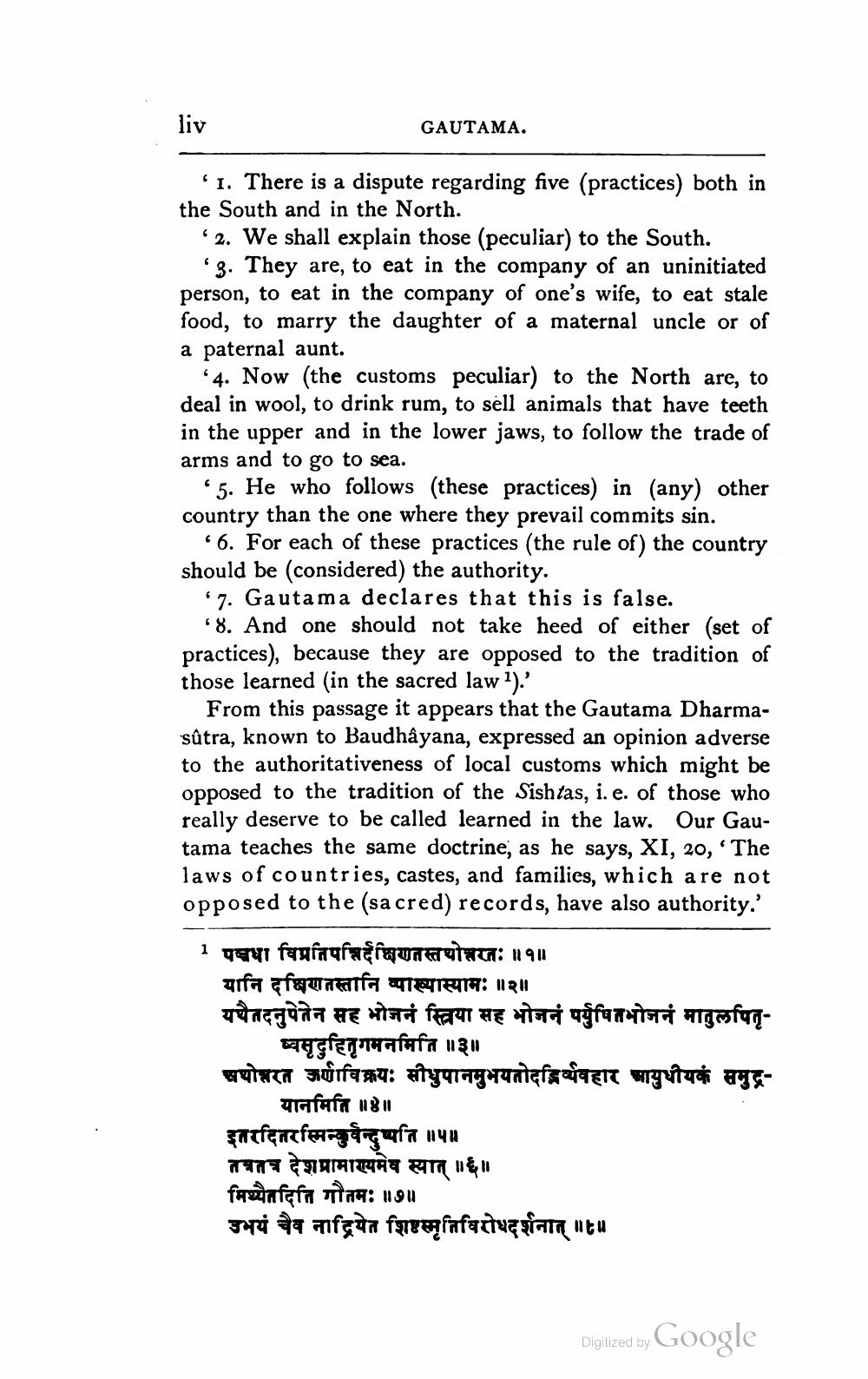________________
liv
GAUTAMA.
'1. There is a dispute regarding five (practices) both in the South and in the North.
2. We shall explain those (peculiar) to the South.
3. They are, to eat in the company of an uninitiated person, to eat in the company of one's wife, to eat stale food, to marry the daughter of a maternal uncle or of a paternal aunt.
4. Now (the customs peculiar) to the North are, to deal in wool, to drink rum, to sell animals that have teeth in the upper and in the lower jaws, to follow the trade of arms and to go to sea.
65. He who follows (these practices) in (any) other country than the one where they prevail commits sin.
6. For each of these practices (the rule of) the country should be considered) the authority.
7. Gautama declares that this is false. 58. And one should not take heed of either (set of practices), because they are opposed to the tradition of those learned (in the sacred law ?).'
From this passage it appears that the Gautama Dharmasútra, known to Baudhâyana, expressed an opinion adverse to the authoritativeness of local customs which might be opposed to the tradition of the Sishtas, i. e. of those who really deserve to be called learned in the law. Our Gautama teaches the same doctrine, as he says, XI, 20, 'The laws of countries, castes, and families, which are not opposed to the (sa cred) records, have also authority.' 1 पक्षधा विप्रतिपनिर्दक्षिणतस्तथोतरतः ॥१॥
यानि दक्षिणतस्तानि व्याख्यास्यामः ॥२॥ यथैतदनुपेतेन सह भोजनं स्त्रिया सह भोजनं पर्युषितभोजनं मातुलपितृ
greqmuafafa 1130 अयोहरत अाविक्रयः सीधुपानमुभयतोदद्भिर्यवहार भायुधीयकं समुद्र
arafafar 1811 इतरदितरस्मिन्कुर्वन्दुष्पति ॥५॥ तत्रतत्र देशप्रामाण्यमेव स्यात् ॥६॥ मिथ्यतदिति गौतमः ॥७॥ उभयं चैव नाद्रियेत शिष्टस्मृतिविरोधदर्शनात् ॥६॥
Digitized by Google




